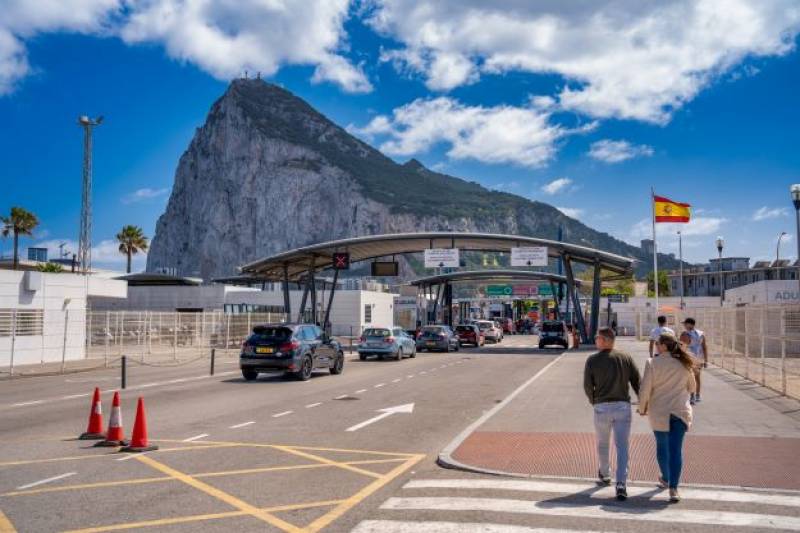Spanish News Today Editors Roundup Weekly Bulletin July 19
TOP STORIES: "What are the chances the AP-7 toll road will be made free for all?" & "Complete guide for staying safe in a heatwave"
The breaking news this Friday is that an update to Microsoft Azure’s CrowdStrike cybersecurity has caused a
major global computer systems crash, wreaking havoc with airport management. Flight screens at airports across Spain and the world went blank this Friday morning, and the systems failure is also reported to have affected banks and other institutions that rely on CrowdStrike.
In other stories this week, there is controversy about travel plans for the Mediterranean coast’s AP-7 autopista, while the country is in for its first major heatwave of the season.
Spain on top
Did you watch the match last Sunday? It was a good game in the end, with
Spain winning 2-1 and an atmosphere that was amazing for those of us here in Spain at the time. I don’t understand why Gareth Southgate felt he had to resign as England manager just because they lost. Is getting to the final not a big enough achievement?
Still, just as the 2023 Women’s World Cup Final between Spain and England was overshadowed by the post-game celebrations (in that case the famous Jenni Hermoso kiss by Luis Rubiales), the Spain Men’s team have managed to tarnish their victory, in some people’s eyes, by singing “Gibraltar es español” after the match.
The Gibraltar government have condemned it as “insulting”; the UK media are equating it to a racial slur; and the mayor of Madrid said it was nothing that the majority of Spaniards didn’t already think.
Let’s be clear – if it were an England-Germany final and England won, you can bet there would be songs and chants going round, even in the locker room, about a certain number of World Wars and a certain number of World Cups, or about ‘bombers in the air’. It’s just a football chant and, for better or for worse, these are often combative and risqué in nature.
Secondly, it’s simply not true that the majority of Spanish people really want Gibraltar to be part of Spain. In reality, the majority of Spanish people don’t think about it very often and don’t really care. So don’t take it to heart.
The other reason that Sunday July 14 will be marked in the calendar as an unforgettable day for Spain is thanks to Murcia’s own Carlos Alcaraz, who won his
second consecutive Wimbledon trophy, besting Djokovic in the final for the second year in a row.
It was Alcaraz’s fourth grand slam title and, after having won Roland Garros earlier in the year, it is his first Channel Slam. This Wimbledon title places him alongside Rafael Nadal as the only two Spaniards to win multiple Wimbledon singles titles, and he is basically secured a place among the all-time greats of tennis.
Last weekend just went to show that, when it comes to sport, no one does it quite like the Spanish.
Pay your toll, sell your soul
If you live anywhere else along the AP-7 route or use it regularly, you’ll be gutted as the government has decided that you’re not worth giving free road access to.
The decision to make this Alicante stretch of the road free was taken as a way of trying to divert traffic from the heavily congested A-7 dual carriageway. The free A-7 road handles a lot more vehicles each day than the AP-7 does, and the free toll scheme aims to redress the imbalance, removing some of the worst traffic jams in the area.
The next three months will be a sort of pilot scheme to see if it works, and after that the Ministry of Transport will decide whether to make the toll road free on a permanent basis.
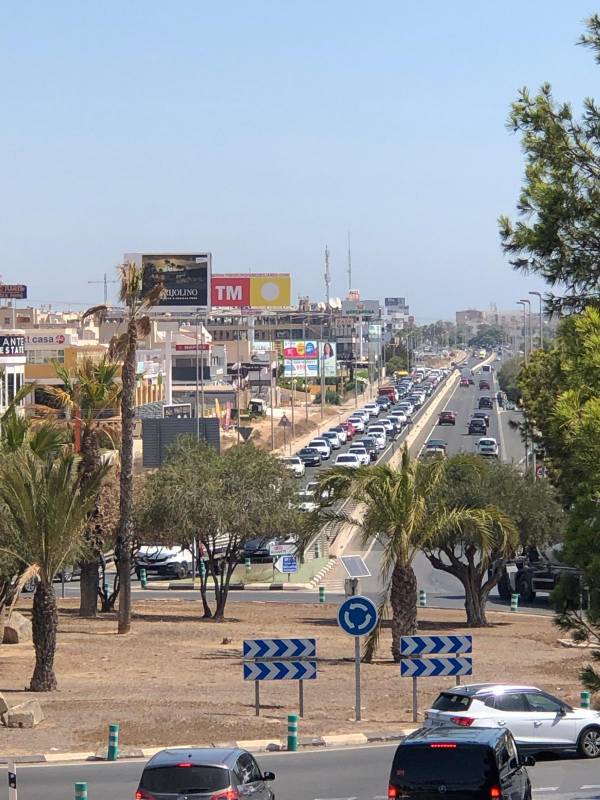
However, this measure is limited to the specified section near Alicante. Despite what was first reported, due to the opaque nature of the comments made by Transport Minister Óscar Puente, the AP-7 sections in Murcia and Andalucía, as well as between Los Montesinos and Villamartín-La Zenia, are not included in the trial, despite the free roads there getting just as much traffic as (if not more than) Alicante’s A-7 autovía.
The decision to remove tolls has sparked
significant backlash, particularly from residents of Orihuela Costa, Murcia and Málaga, who feel neglected by the government. They are disappointed that their longstanding requests to eliminate tolls on their sections of the AP-7 were ignored.
For instance, Orihuela Costa’s toll section remains one of the most expensive in Spain, with charges of nearly five euros for a mere 13 kilometres between Los Montesinos and La Zenia.
Although the section between La Zenia and Cartagena is toll-free, the high overall cost results in only about 6,000 vehicles using the motorway daily. For travellers from Alicante Airport heading south, the choices remain either paying the tolls or enduring the congestion on the N-332 dual carriageway, which also needs improvements.
Adding to the frustration, the government has persistently refused to eliminate the tolls on the Marbella motorway. However, there is a glimmer of hope as a meeting between the local Málaga government and the Ministry is scheduled for July 17, with Marbella mayor Ángeles Muñoz optimistic that they can reach an agreement to subsidise or reduce the toll on the Costa del Sol highway.
It’s also true that the Alicante city part of the AP-7 produces minimal revenue for the government – only around 2-3 million euros per year. Other sections of the AP-7 earn a lot more than that, and so it is definitely not in the government’s best interest to make them free and risk losing out on valuable income, especially in the summer when tolls are raised to try to make a bit more out of the tourists.
So, while Orihuela, Torrevieja and other local government authorities have launched official complaints calling for free tolls, don’t expect the government to listen any time soon.
Summer safety
As summer temperatures soar in Spain, it’s crucial to prioritise safety for yourself, your pets and those around you. With the mercury soaring past the 40s this weekend as the first heatwave of 2024 hits, we’ve put together a
comprehensive guide to summer safety, including what you need to know about staying hydrated, protecting your pets, enjoying your workouts safely and knowing what to do in emergencies like drowning incidents.
The great water debate
While a chilled glass of water can be refreshing and might temporarily lower body temperature, it has its downsides. Cold water can slow your heart rate, lead to congestion and potentially cause headaches. It might also interfere with digestion if consumed right after meals, hardening fats and leading to discomfort.
On the other hand, room temperature water supports digestion better and helps in breaking down fats more efficiently. It can also boost metabolism and improve toxin removal.
Ultimately, whether you prefer cold or room temperature water, the essential thing is to stay hydrated consistently. Drink plenty of water, listen to your body and adjust your intake based on your activities and needs.
Protecting pets during heatwaves
With the first heatwave of the summer descending as we speak,
pet owners need to be vigilant on behalf of their animals. Dogs, like humans, can suffer from heat stroke, and not all breeds can handle the heat equally. Factors such as coat type, age and weight significantly influence a dog’s ability to withstand high temperatures.
Dehydration, burns and cracked paw pads are common issues that could mean dogs have to be brought to the vet during the summer months.
To protect your pooch, here are a few top tips from veterinarians in Spain:
- Adjust walking schedules: Avoid walking your dog during the hottest parts of the day. Go for early morning or late evening walks instead.
- Increase hydration: Just like people, you need to ensure your dog has constant access to fresh water. Carry a portable water bottle and bowl during walks.
- Regular brushing: Brush your dog regularly to remove excess fur, but avoid shaving their coat as it can lead to sunburn and other skin issues.
- Sun protection: There are lots of doggy sunscreens available in pet stores in Spain. If your furry friend is light-skinned it could be an idea to apply sun block to sensitive areas like the muzzle and belly.
- Check the road surface: Asphalt and concrete can reach extremely high temperatures. Test the surface with your hand – if it’s too hot for you, it’s too hot for your dog.
Enjoying workouts safely
You’ll want to continue to stay active and healthy even though it’s hot, but
maintaining a fitness routine in the summer requires careful planning to avoid heat-related illnesses. Here are some essential tips for a healthy and enjoyable workout routine during the hot months:
- Embrace the early bird mentality: Work out in the early mornings or late evenings when temperatures are cooler. This helps you avoid the intense midday sun.
- Acclimatise your body: Gradually increase the intensity of your workouts to allow your body to adapt to the heat. Start with lower-intensity exercises and ramp up as you become more comfortable.
- Hydration is key: It may seem like we’re labouring this point, but it really is so important to stay hydrated by drinking water frequently throughout your workout. For high-intensity exercises, consider sports drinks with electrolytes to replace those lost through sweating.
- Dress for success: Wear lightweight, loose-fitting clothing that allows your skin to breathe. Light colours like white reflect sunlight, keeping you cooler. Protect your head and face with a cap or hat.
- Listen to your body: Pay attention to signals like dizziness, nausea or excessive tiredness. Slow down or take breaks if you experience these symptoms to prevent heat exhaustion or heatstroke.
Handling emergencies
When the weather’s this warm, sometimes the best place to be is down on the beach, with a cooling sea breeze and the chance to take a dip in the ocean. However, given the significant number of emergency situations that take place on beaches every summer, it’s crucial that you knowing
what to do if you see someone in trouble in the water.
The ‘PAS’ rule (Protect, Alert, Save) can guide you through the initial steps of an emergency response:
- Protect: Ensure your own safety before attempting a rescue. Call for help and attract the attention of nearby lifeguards or beachgoers.
- Alert: Shout for assistance and throw a flotation device if available. Prevent further danger by avoiding risky rescue attempts if you’re unsure of your swimming abilities.
- Save: If you decide to enter the water, get the person out as quickly and safely as possible. Clear their nose and mouth of obstructions and place them face-up on the shore. Check for responsiveness by talking to them, touching them or pinching them gently.
If the person responds, still call emergency services (dial 112 in Spain rather than 999) for medical advice. If unresponsive, call 112 immediately and follow the operator's instructions. Provide detailed information about the situation and your location.
If they are breathing, tilt their head back to keep the airway open. If not breathing, perform CPR with 30 chest compressions followed by two breaths. Continue the cycle until the victim starts breathing, you become exhausted or help arrives.
Familiarising yourself with basic CPR and rescue techniques can make all the difference in an emergency and potentially save a life this summer.
Summer in Spain is a time is definitely a time of stunning weather and plenty of outdoor activities, but the high temperatures and bright sun also carry risks. These shouldn’t stop anyone from enjoying themselves, but they do warrant some attention.
By following these guidelines, you can ensure that you, your loved ones and your pets stay healthy and happy during the hottest months of the year.
Murcia
Last week we brought you the news that a British couple were hit by a drunk driver in Los Narejos, Los Alcázares, while walking back to their hotel. They were both in a serious condition and were taken to hospital, where the man later died. His wife, now a widow, is
out of the Intensive Care Unit and in a stable condition.
The driver involved in the incident was found to be driving without a licence and three times over the legal alcohol limit. In a subsequent court appearance, the driver claimed
poor lighting conditions as the cause of the accident, stating that he could not see the couple on the pedestrian crossing outside the Costa Narejos hotel.
He maintained that he was driving at an appropriate speed and disputed initial reports that he did not have a driving licence. He clarified that, since he had only recently acquired Spanish nationality, there was a delay in linking his driving licence to his DNI identity card.
Contrary to earlier reports, he did not flee but stopped to assist the victims. He faces charges of reckless homicide, serious injury and road safety violations, but was released pending trial.
The Guardia Civil discovered the rocks following a vehicle collision and linked them to the man after carrying out covert surveillance of the area. When they caught him, he was just coming back from placing his latest roadblock, in the hours just before dawn, and for some reason he was accompanied by four minors.
When police detained him, he claimed his actions were motivated by the loss of his pet, who was run over at that spot. A sad incident, to be sure, but it hardly warrants taking vengeance on random motorists by placing huge boulders in the road and endangering their lives. The man faces criminal charges while the minors’ involvement is under investigation.
on Monday with its epicentre near Hacienda Riquelme Golf Resort, just north of La Tercia and Sucina.
Despite the relatively low magnitude, some locals felt the tremor, even across the border in Alicante province, describing it as a sensation similar to a steamroller entering their homes!
For all that, the quake, recorded at a depth of one kilometre, caused no reported damage or injuries. Indeed, minor quakes like this one are frequent in Murcia and often go unnoticed, especially if they occur during the night while people are asleep in bed.
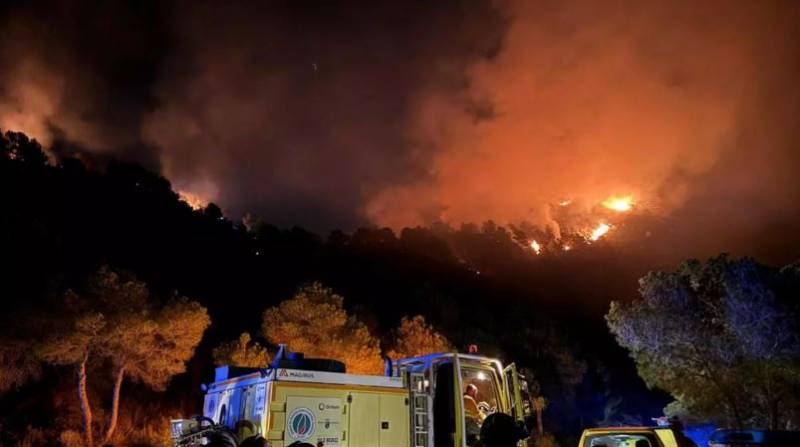
Just a couple of days later, a
wildfire broke out around the countryside of Altaona in central Murcia, near the Alicante border. The fire, reported around 10.30pm on Wednesday, prompted over 200 calls from concerned residents in the Cabezo de la Plata/El Garruchal area.
Firefighters and forestry brigades worked overnight to control the blaze, which continued to burn into the following day. Helicopter teams and around 50 personnel were deployed to extinguish the fire, which had already consumed approximately five hectares of forest.
The entire Region of Murcia faces a high risk of forest fires due to elevated temperatures and dry conditions and, while the causes of this particular fire are still under investigation, the authorities are urging people to take precaution to prevent activities that could ignite or spread fires, such as discarding cigarette butts or leaving rubbish.
To see foody events, craft markets, guided tours, walks and other events coming up soon in the Region of Murcia, see our EVENTS DIARY:
Spain
A post-mortem conducted on Tuesday confirmed that Jay’s death was due to “trauma consistent with a fall in a rocky area”.
His body was found in a steep, inaccessible part of the mountain, close to where his phone signal was last detected.
The Guardia Civil concluded that the teenager most likely fell and died from his injuries and the High Court of Justice of the Canary Islands confirmed the positive identification through fingerprint tests.
The young holidaymaker’s family is already in Spain and they are making arrangements to fly his body back to the UK, where he will finally be laid to rest.
Jay’s last contact was with fellow holidaymaker Lucy Law, who took to Instagram following the tragic news to pay tribute to her pal.
“Honestly lost for words. Always the happiest and most smiley person in the room, you was (sic) one of a kind Jay and you’ll be missed more than you know.”
Ms Law’s tribute continued: “I’m sure you’ll ‘have your dancing shoes polished and ready’ waiting for us all.
“We all love you buddy. Fly high.”
Across all of Spain, a new set of regulations aimed at ensuring child safety during car journeys will come into force on September 1, 2024. These updates will replace the European R44 regulation with the new R129 Child Restraint System (CRS), which means that
child and baby car seats are getting a major update and overhaul.
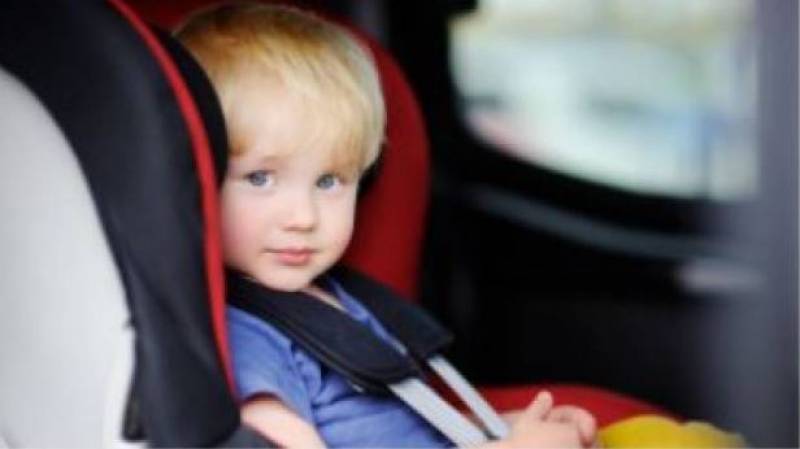
One major change with the R129 regulation is that the new child seats will be selected according to the kid's height rather than weight. Additionally, when the R129 car seats were being designed, manufacturers used advanced test dolls for safety assessments, so these devices are by far the most secure ever put on the market.
This is because seats approved under the R129 standard offer enhanced safety, including energy-absorbing elements, making them safer and more comfortable during accidents.
Despite the technical advancements, the prices of these seats remain reasonable, typically ranging from 50 to 700 euros.
The good news is that the old seats will remain perfectly legal to use after the September deadline (you just won’t be able to buy or sell them second-hand). But if you purchase a new seat, it will be the new model, so the old one will be gradually phased out.
But whether you go with the old or the new, ensuring any seat is approved and checking its certification is crucial for safety and compliance. Failure to use an approved seat for a child under 135cm could result in a 200-euro fine and the loss of four points from your driving license.
Meanwhile, Spain’s first-ever national animal welfare law, which took effect on September 29 last year, continues to evolve with new regulations.
One of the first requirements to draw widespread notice (and disapproval, in many cases), is that all dog owners must take an online training course, which will be free, last four hours and be valid indefinitely.
However, it was announced a few days ago that this requirement will only apply to those who acquire, adopt or accept a dog on loan after six months from the date the royal decree comes into force.
Alicante
The incident occurred around lunchtime on Friday July 12, near the Help at Home Charity Shop. This area of the shopping centre is full of bars and restaurants and is usually packed with tourists during the summer months.
Reports indicate that Hillary was walking along a footpath when she slipped and fell through a gap in a metal fence, dropping approximately three metres onto the concrete below.
Emergency medical personnel worked to stabilize Hillary for 45 minutes before transporting her to the University Hospital of Torrevieja. Despite the medical team’s efforts during surgery, Hillary succumbed to severe head and neck injuries shortly a few hours later.
Her devastated friend Priscilla was by her side when she slipped away.
“I’ll never get it out of my head,” Priscilla said, explaining that Hillary fell through a gap in the fencing that was being repaired at the time.
“She walked on the wrong side of where the workers were and went straight over the edge of the road, tripping and falling into the void, falling onto a service road,” she said.
Having lived in Parque del Duque for almost 20 years, Hillary was a well-known figure in the community. Her son Paul has since travelled to Orihuela Costa to lay his mum to rest.
The tragedy has sparked widespread concern among local residents and visitors, who have long been vocal about the need for better maintenance and repairs throughout Orihuela Costa, especially in the Playa Flamenca commercial centre. The deteriorating condition of the fencing has been a point of contention, raising questions about safety standards.
Also in Orihuela, visitors at Campoamor beach in Orihuela Costa were taken aback this weekend when they spotted a
large devil ray swimming unusually close to the shore. In the shallow waters of Dehesa de Campoamor, beachgoers witnessed a creature that, despite being common in the Mediterranean Sea, is rarely seen near the coast due to its preference for deeper waters.
These rays typically inhabit offshore areas, living in small groups and staying close to the seabed. The unexpected appearance of the ray left many onlookers in awe, with children excitedly shouting “Manta ray!” and one beachgoer (rightly) predicting, “This is going to be on the news!”
Devil rays, or Mobula mobular, are a part of the manta ray family, known for their spiny tails and significant size. While it is unclear how large the specific ray at Campoamor was, these creatures can measure between 5 and 8 metres in length and weigh up to one and a half tonnes, comparable to a medium-sized hippopotamus.
Experts suggest that the ray may have ventured so close to the shore if it had become disorientated. After its brief visit, the ray swam back out to sea, leaving the beachgoers with a memorable encounter.
Further up the coast in the province of Castellón, a decidedly more unsettling and gruesome event unfolded this week.
Beachgoers in Spain are no strangers to unexpected creatures turning up in the water, but tourists relaxing on Torrenostra beach in Torreblanca on Tuesday afternoon were horrified when
the bloated body of a dead bull washed up.
Lifeguards quickly cordoned off the area to protect onlookers as the decomposed body floated toward the beach. Despite the foul odour, many curious spectators remained to watch as Local Police, the Guardia Civil and Town Council workers struggled to load the large carcass onto a tractor for removal.
Authorities are puzzled about how the bull ended up on the beach, but this strange occurrence is reminiscent of a similar incident in 2013, when strong waves and currents in Alicante caused a headless cow to wash up on Arenales del Sol beach in Elche.
Officials suspected that the animal had died on a cargo ship and was subsequently discarded overboard.
Adding to the irony, Castellón’s Torrenostra beach had recently regained its Blue Flag status, an award given for exceptional water quality and hygiene, after missing out on the accolade last year. The arrival of the bull’s corpse doesn’t exactly tally up with the beach’s renewed reputation for cleanliness.
Andalucía
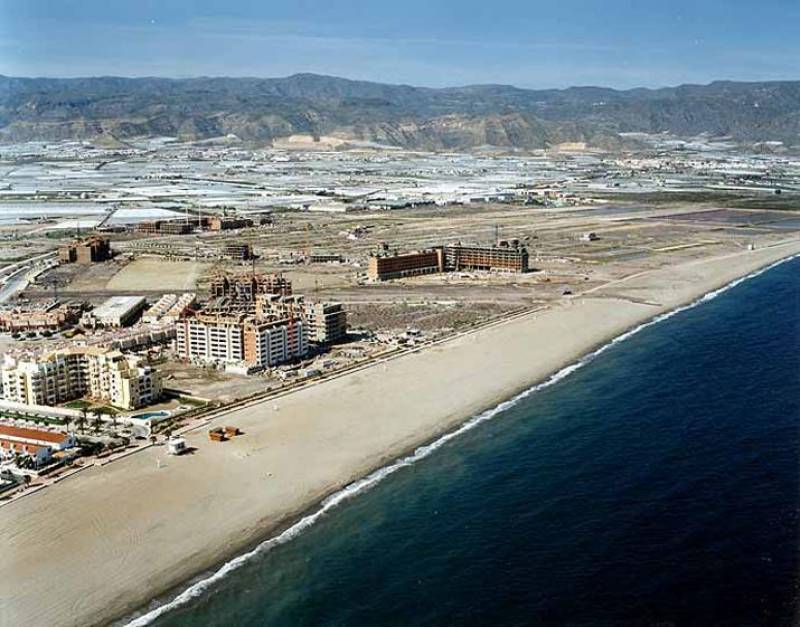
A tragic incident occurred this week at Playa de las Salinas beach in Roquetas de Mar, Almería, where a
54-year-old Romanian man drowned on Tuesday. The Emergency Coordination Centre (Cecem 112) reported that around 4.50pm, someone on the beach noticed the man floating motionless near the buoys and promptly alerted emergency services.
The lifeguards used jet skis to reach the man and bring him to shore. Despite the immediate medical efforts, including CPR and the assistance of two ambulance crews, the man was pronounced dead at the scene. It remains unclear whether he was an expatriate residing in the area or a tourist visiting Spain.
Finally, we mentioned the topic of Gibraltar near the beginning of this Editor’s Weekly Bulletin and it’s as good a place as any to end this week.
It’s a move that aligns with the EU’s new Entry Exit System (EES) requirements, which is being rolled out from October this year as a way of regulating the access of third-country nationals to Europe.
Currently, UK citizens and other nationalities entering Gibraltar must adhere to specific requirements at the Spanish border, such as presenting a passport, justifying the purpose of their visit and possibly even demonstrating that they have sufficient funds for the entirety of their stay. In contrast, Gibraltarians benefit from a unique status allowing them to pass through by merely showing their ID.
The implementation of biometric facial checks aims to streamline the border crossing process, but it might pose inconveniences, particularly regarding data collection on British and US military personnel stationed in Gibraltar and who frequently cross the Gibraltar.
Negotiations are ongoing between the EU and the UK about Gibraltar’s future post-Brexit, with discussions focusing on potentially incorporating Gibraltar into the European Schengen area. If an agreement on the free movement of people across this border is eventually reached, the newly installed border system might need to be dismantled after all, making all that money they’ve put into their new tech an utter waste.
Either the Spanish government doesn’t care that they could potentially lose all that money, or they know something we don’t that the negotiations are doomed not to yield any results. Or, more likely, they’re simply thinking that it’s been three years since the Gibraltar Brexit negotiations started and they are still no closer to a resolution than when Boris Johnson was Prime Minister, so they might as well get on with their EU-dictated duty to digitise and reinforce the border, since there are only three months left until the EES comes into force.
You may have missed…
- German family hospitalised after huge vulture smashed through their windshield in northern Spain.
A German couple and their 7-year-old son were lucky to escape with their lives this Tuesday when an enormous vulture smashed through their windshield as they were driving along the A-121 road near the town of Ricla in Zaragoza.
- When and where to do free yoga, pilates and aerobics on Cartagena beaches.
Until the end of August, 14 of Cartagena's beaches are turning into open-air exercise areas where you can get fit with free classes in yoga, pilates, aerobics, aquagym and more. No booking necessary – just show up and go with the flow. Here is the full list of where and when to enjoy these free exercise activities.
- British and Norwegian suspects arrested in Spain over identity fraud.
In a wide-ranging police operation spanning Orihuela Costa, Torrevieja (Alicante) and Los Urrutias (Murcia), 10 people have been arrested, including four British and Norwegian men between 20 and 46 years old, on suspicion of being members of a criminal gang that defrauded people around Spain by stealing their identities.
- French tourist murdered in her campervan in Spain.
A 60-year-old French tourist has been found dead inside her campervan in the town of Alcossebre, Castellón.
- First Neanderthal with Down syndrome found in Spain.
The fossil of a 6-year-old Neanderthal child found in a cave in Valencia, Spain, reveals the first known case of Down syndrome among these early humans, who vanished about 40,000 years ago, and suggests that they cared for their vulnerable without expecting anything in return.
That’s all for this week. Thanks for reading and we’ll be back next week.
’Til then!


 Spanish News Today
Spanish News Today
 Alicante Today
Alicante Today
 Andalucia Today
Andalucia Today


 However, this measure is limited to the specified section near Alicante. Despite what was first reported, due to the opaque nature of the comments made by Transport Minister Óscar Puente, the AP-7 sections in Murcia and Andalucía, as well as between Los Montesinos and Villamartín-La Zenia, are not included in the trial, despite the free roads there getting just as much traffic as (if not more than) Alicante’s A-7 autovía.
However, this measure is limited to the specified section near Alicante. Despite what was first reported, due to the opaque nature of the comments made by Transport Minister Óscar Puente, the AP-7 sections in Murcia and Andalucía, as well as between Los Montesinos and Villamartín-La Zenia, are not included in the trial, despite the free roads there getting just as much traffic as (if not more than) Alicante’s A-7 autovía.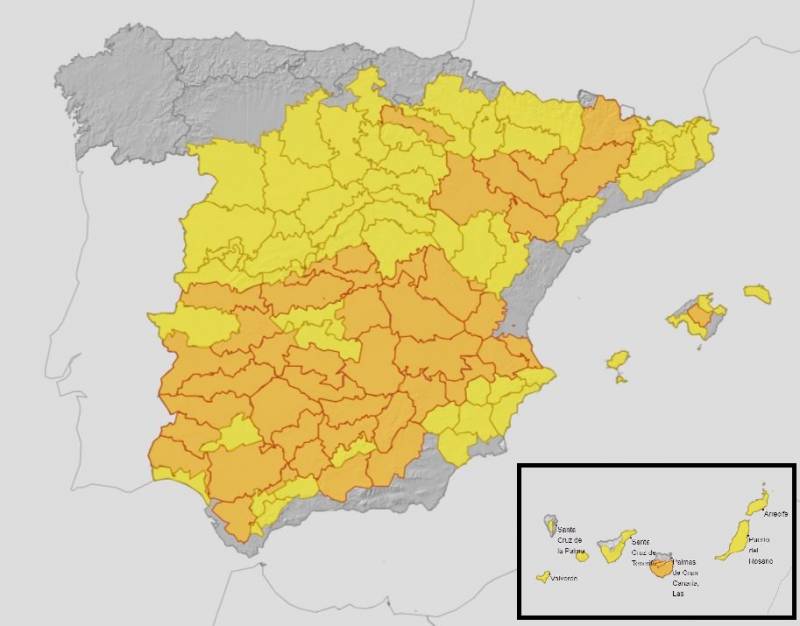
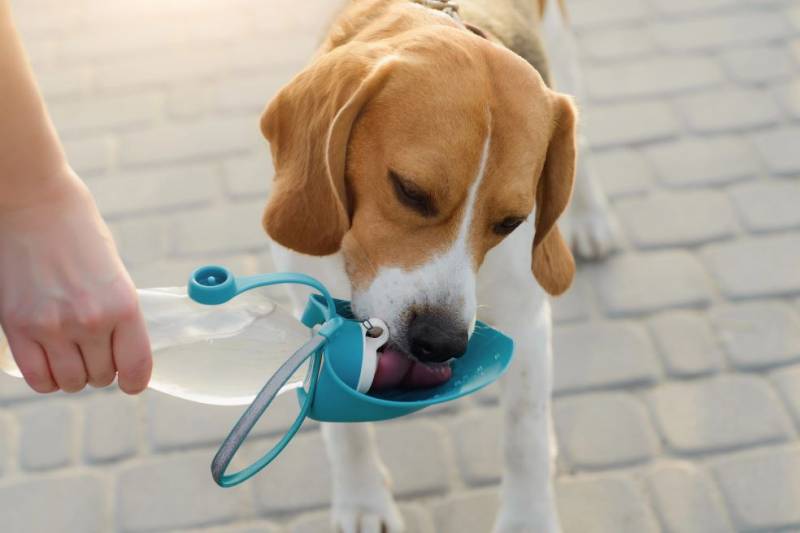
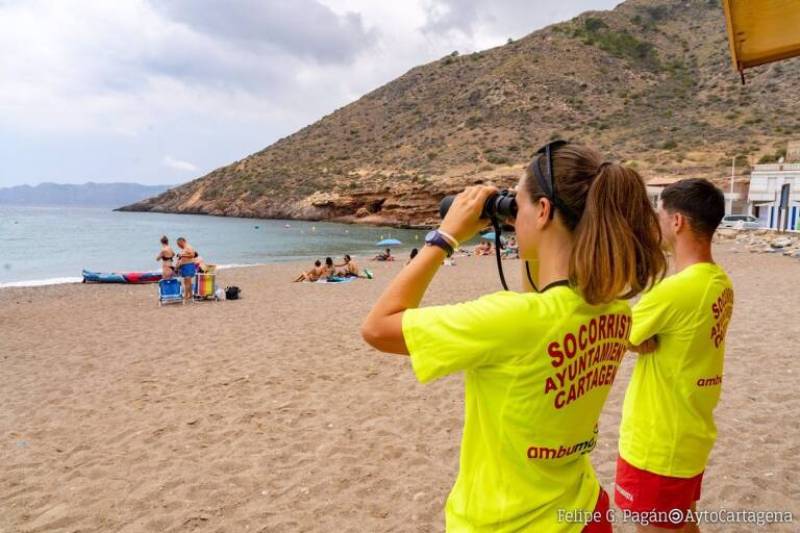
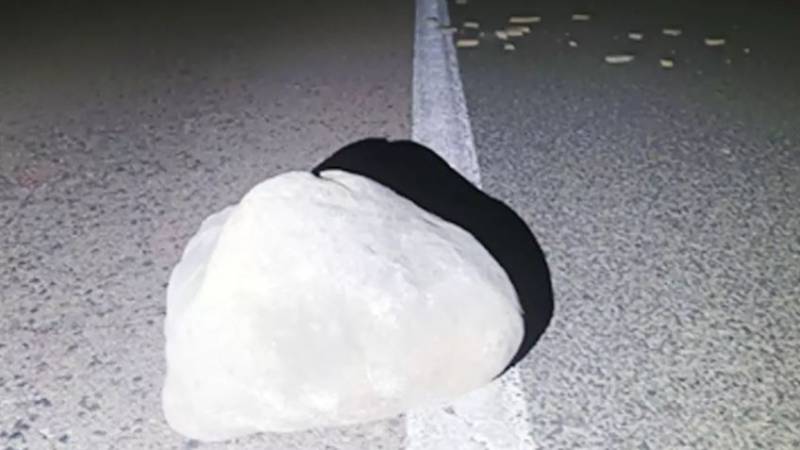 Meanwhile, on another road up in northern Murcia, a 38-year-old Bulgarian man was arrested after he was found to be placing large rocks on the RM-715 road in Moratalla, allegedly in retaliation for his cat’s death on the same road.
Meanwhile, on another road up in northern Murcia, a 38-year-old Bulgarian man was arrested after he was found to be placing large rocks on the RM-715 road in Moratalla, allegedly in retaliation for his cat’s death on the same road. Just a couple of days later, a wildfire broke out around the countryside of Altaona in central Murcia, near the Alicante border. The fire, reported around 10.30pm on Wednesday, prompted over 200 calls from concerned residents in the Cabezo de la Plata/El Garruchal area.
Just a couple of days later, a wildfire broke out around the countryside of Altaona in central Murcia, near the Alicante border. The fire, reported around 10.30pm on Wednesday, prompted over 200 calls from concerned residents in the Cabezo de la Plata/El Garruchal area. One major change with the R129 regulation is that the new child seats will be selected according to the kid's height rather than weight. Additionally, when the R129 car seats were being designed, manufacturers used advanced test dolls for safety assessments, so these devices are by far the most secure ever put on the market.
One major change with the R129 regulation is that the new child seats will be selected according to the kid's height rather than weight. Additionally, when the R129 car seats were being designed, manufacturers used advanced test dolls for safety assessments, so these devices are by far the most secure ever put on the market.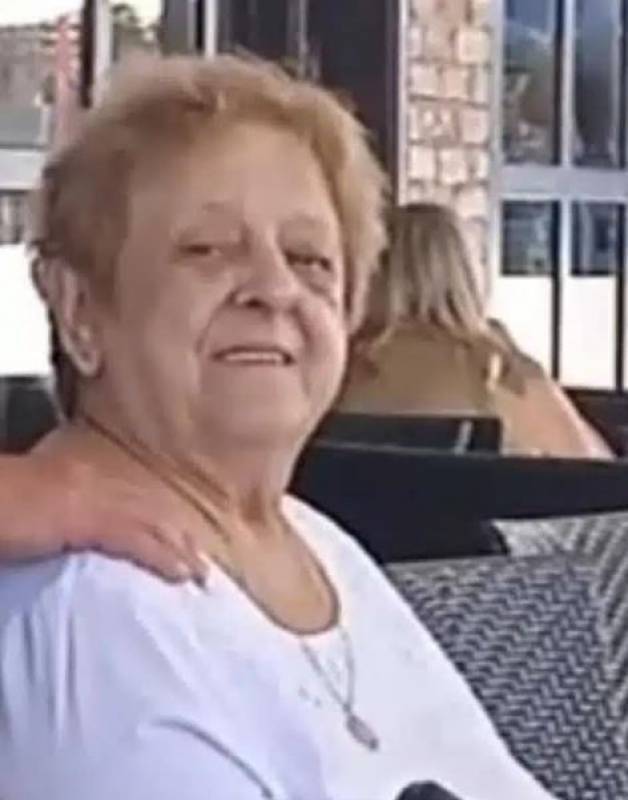 A 74-year-old British expat has tragically passed away following a fall at the Playa Flamenca commercial centre in Orihuela Costa. The victim, identified as Hillary Phillips, was a beloved long-time resident of the area.
A 74-year-old British expat has tragically passed away following a fall at the Playa Flamenca commercial centre in Orihuela Costa. The victim, identified as Hillary Phillips, was a beloved long-time resident of the area. A tragic incident occurred this week at Playa de las Salinas beach in Roquetas de Mar, Almería, where a 54-year-old Romanian man drowned on Tuesday. The Emergency Coordination Centre (Cecem 112) reported that around 4.50pm, someone on the beach noticed the man floating motionless near the buoys and promptly alerted emergency services.
A tragic incident occurred this week at Playa de las Salinas beach in Roquetas de Mar, Almería, where a 54-year-old Romanian man drowned on Tuesday. The Emergency Coordination Centre (Cecem 112) reported that around 4.50pm, someone on the beach noticed the man floating motionless near the buoys and promptly alerted emergency services.